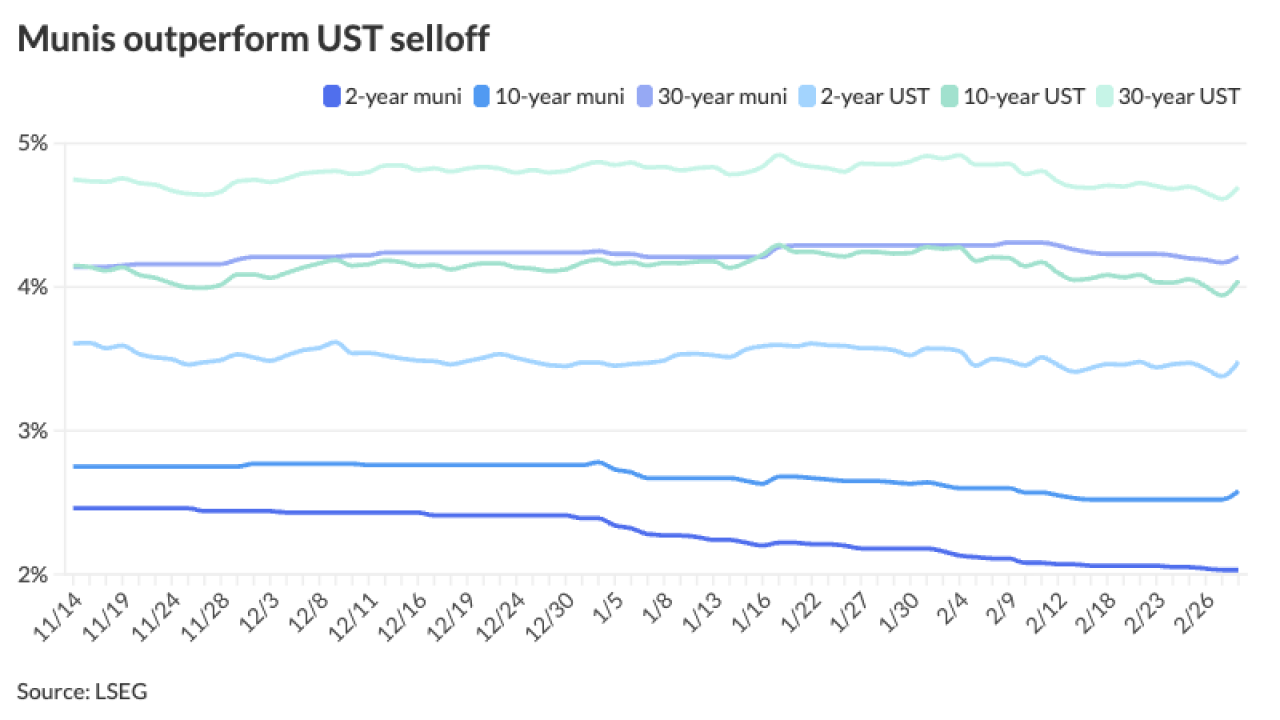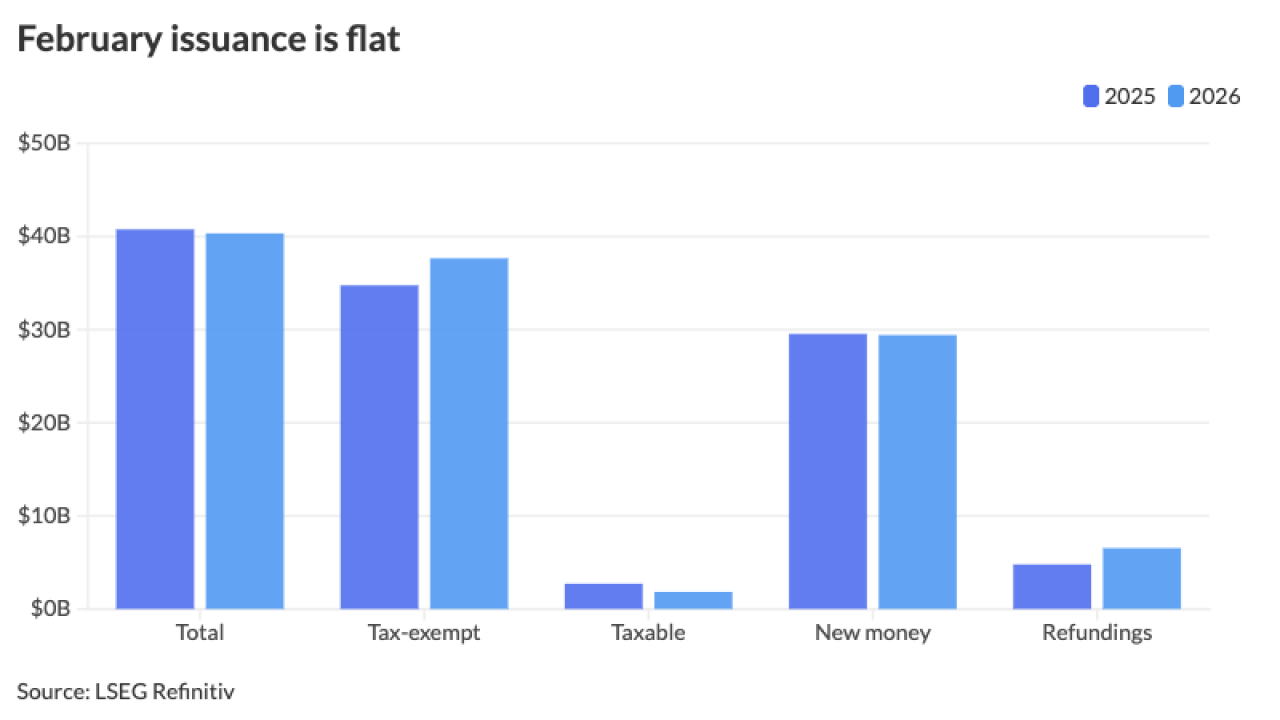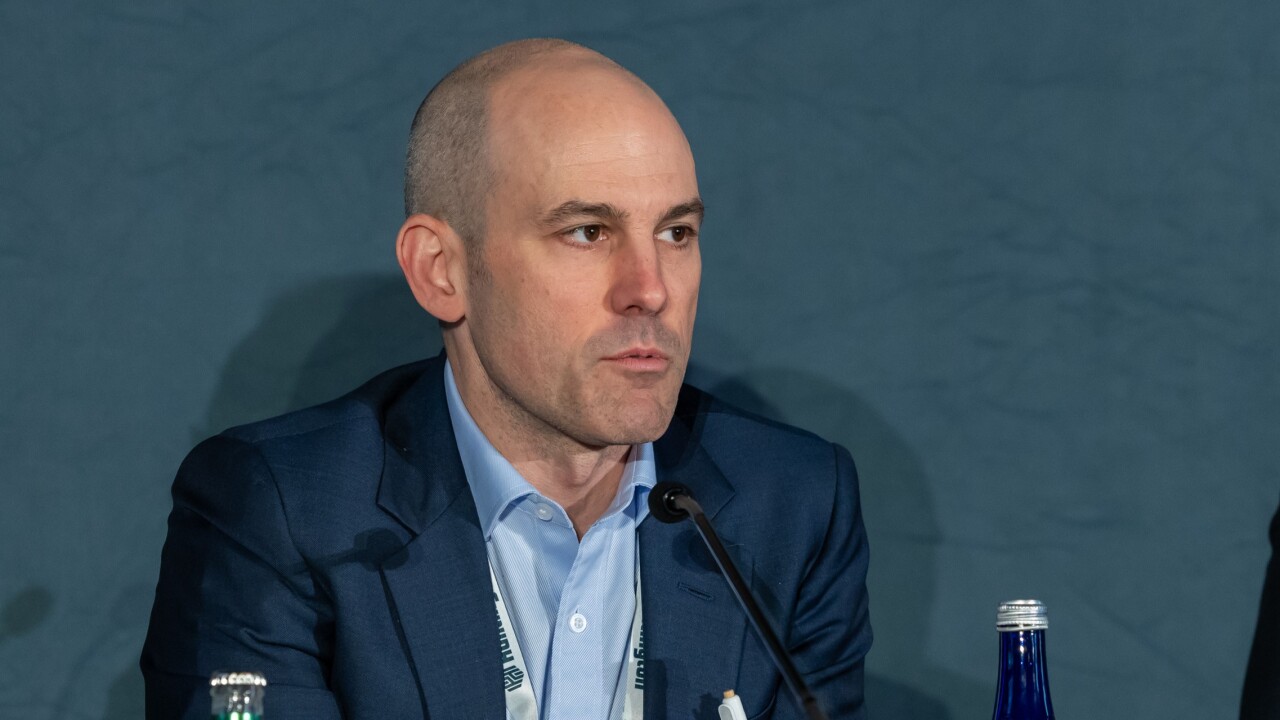

BRADENTON, Fla. – North Carolina's Fayetteville Public Works Commission is speeding up a competitive bond offering to get ahead of potential tightening by the Fed this year.
"The market conditions presented an opportunity to save our utility ratepayers significant dollars; therefore, we accelerated the bond issue planned for the November time period to take advantage," said Chief Financial Officer J. Dwight Miller.
The PWC will auction about $110.8 million of high-grade revenue bonds on June 8 in a rare competitive deal from an issuer from the Tar Heel state.
The transaction is expected to be structured with $70 million of 25-year new-money bonds and about $41 million of refunding bonds being issued for debt service savings within existing maturities.
The bond proceeds will finance improvements to the combined utility's electric, water and wastewater systems.
First Tryon Advisors is the financial advisor.
Womble Carlyle Sandridge & Rice LLP and the Charleston Group are co-bond counsel.
The refunding is expected to yield net present value savings of more than 8.5%, which will reduce debt payments by $6.1 million, Miller said.
Miller said the potential for the Fed to increase interest rates in the next few months factored into the decision to issue the bonds sooner than originally planned.
Federal Reserve Chair Janet Yellen signaled her support for raising interest rates in a speech May 27. She did not indicate how much rates should increase or when the Fed should take action.
The Federal Open Market Committee meets June 14-15, and some analysts speculate that the FOMC will contemplate a second interest rate increase since raising the rate by 25 basis points in December.
"We are hopeful that any anticipated increases are not already built into the market for next week's sale," Miller said.
The success of PWC's first competitive revenue bond deal two years ago was also a factor in the timing of next week's sale, he said, in addition to national trends that show an increase the number of firms bidding in competitive auctions, low issuance volume, and low interest rates.
The double-A rated PWC was last in the bond market in 2014 when it competitively issued $111.5 million of revenue bonds.
Although an infrequent issuer, the PWC's previous revenue bond deals were sold as negotiated offerings, in line with how most other issuers in North Carolina sell revenue-backed debt.
While the state requires general obligation bonds to be sold by competition, there is no such requirement for revenue bonds, according to state officials.
Very few non-general obligation bonds are sold competitively in the state, said David Cheatwood, a director at First Tryon Advisors.
"Besides PWC's 2014 deal, I don't believe we've seen any other utility revenue bonds go this route," Cheatwood said. "So we still see PWC's approach to its bond sale as a unique one in the state."
Between 2010 and 2015, North Carolina issuers sold $21.4 billion of their revenue bonds by the negotiated method, or about 95% of the total volume, in 356 issues, according to statistics from Thomson Reuters.
Over the same five-year period, only $1.13 billion of revenue bonds were sold competitively in 11 issues, representing about 5% of all revenue-backed volume from the state.
"We had a lot of success with the 2014 deal in terms of the number of bidders and the resulting interest cost," Cheatwood said. "The current market environment continues to be very attractive with low interest rates, strong demand and limited volatility."
The PWC received seven bids for the 2014 deal.
Piper Jaffray submitted the winning bid with a true interest cost of 3.307%.
The bonds priced to yield 0.48% with a 3% coupon in 2017, 2.58% with a 4% coupon in 2027, and 3.57% with a 4% coupon in 2039.
"We were very pleased with the interest and results of our last competitive sale," Miller said. "It just seems natural to offer [next week's] bonds competitively to be assured of obtaining the lowest borrowing cost for our utility customers."
He said the PWC expects there will be greater interest in next week's offering in part due to PWC's double-A bond ratings, which were affirmed for the upcoming transaction.
"Given our strong financial condition that continues to show improvement it positions us to receive interest rates we will be happy with," Miller said.
Fitch Ratings and S&P Global Ratings both assign AA ratings to the bonds, while Moody's Investors Service assigns its Aa2 rating.
All three agencies assign a stable outlook to the credit.
The utility has a flexible rate structure and strong finances, analysts said, adding that its service area is large and stable.
"Solid financial metrics" include cash on hand and $53 million in electric, water, and wastewater rate-stabilization funds, which are sufficient to cover about 224 days' operating expenses, according to S&P.
On May 23, Superior Court Judge Allen Baddour ruled that the PWC has the authority to set its own policies and procedures with regard to the management and operation of the utility systems.
The ruling followed a lawsuit filed by the PWC in 2014 asking the court to determine the rights of the legislatively created utility. The suit was filed in response to attempts by the city of Fayetteville to exert greater oversight and control of the utility and its expenses, according to court filings.
Baddour's ruling confirms that the PWC Commission has rate setting authority and the ability to control its fiscal policies without approval from the city council, both Fitch and Moody's said.
The Fayetteville Public Works Commission provides electricity, water and wastewater services to the city of Fayetteville and surrounding areas in Cumberland County.
The Commission is the largest municipal electric provider in North Carolina and the 35th largest in the United States with more than 82,000 electric customers.
The PWC provides water to more than 94,000 households and businesses, and serves 85,000 wastewater customers.
Fayetteville is about 60 miles south of Raleigh, the state capital, and approximately 140 miles east of Charlotte. The city had an estimated population of 203,948 in 2014, according to the U.S. Census Bureau.
The city is home to Fort Bragg, the largest U.S. Army installation in the country in terms of population, and the U.S. Air Force's Pope Field.





